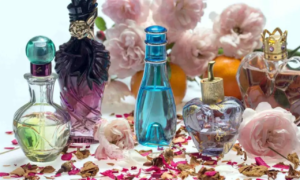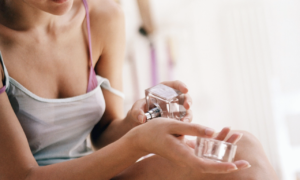Perfume and cologne are often used interchangeably, but they have distinct differences that set them apart. The primary difference lies in their concentration of fragrance oils. Perfume, also known as perfume, has a higher concentration of fragrance oils, making it more intense and longer-lasting. On the other hand, cologne, or eau de cologne, has a lower concentration of these oils, resulting in a lighter, more refreshing scent that doesn’t linger as long. Understanding these differences can help you choose the right fragrance for any occasion or preference.
Keep reading to delve deeper into the nuances that distinguish perfume from cologne. We’ll explore the origins of these terms, their historical contexts, and how their compositions influence their longevity and intensity. You’ll also discover the different occasions best suited for each type of fragrance, and tips on how to make the most of their unique qualities.
Whether you’re a fragrance enthusiast or simply curious, this comprehensive guide will provide all the information you need to make informed choices about your scent preferences.
· Historical Origins of Perfume and Cologne

Perfume and cologne have rich historical origins that date back to ancient civilizations. Perfume, derived from the Latin word “perfume” meaning “through smoke,” was first used by the Egyptians around 4,000 years ago for religious ceremonies and daily life. They created fragrances using natural ingredients like flowers, herbs, and resins. The art of perfumery spread to ancient Greece and Rome, where it became a symbol of luxury and refinement.
Cologne, on the other hand, has its roots in 18th-century Germany. The term “eau de cologne” originates from the city of Cologne, where an Italian perfumer named Johann Maria Farina created a light, citrus-based fragrance in 1709. Farina’s creation was intended to evoke the feeling of a fresh spring morning in Italy, and it quickly gained popularity among European royalty and aristocrats. Over time, cologne evolved to include a variety of scents, but it has always maintained its reputation for being a light and refreshing fragrance option.
· Fragrance Oil Concentrations Explained
Fragrance oil concentration is a key factor that determines the strength and longevity of a scent. Perfumes, or perfume, have the highest concentration of fragrance oils, typically ranging from 20% to 30%. This high concentration results in a potent and long-lasting scent, often enduring for over eight hours with just a single application.
Eau de parfume follows with a slightly lower concentration of fragrance oils, around 15% to 20%, offering a robust scent that lasts for about six to eight hours. Eau de toilette contains about 5% to 15% fragrance oils, providing a lighter scent that typically lasts four to six hours. Finally, eau de cologne has the lowest concentration, usually between 2% to 4%, making it a refreshing and subtle option that lasts for two to four hours. Understanding these concentrations helps in choosing the right fragrance strength to match your preferences and needs.
· Longevity and Intensity: Perfume vs. Cologne

When comparing perfume and cologne, longevity and intensity are two of the most notable differences. Perfume, with its higher concentration of fragrance oils (typically 20% to 30%), offers a more intense scent that can last for over eight hours. This makes it ideal for occasions where a long-lasting and noticeable fragrance is desired, such as evening events or special occasions.
Cologne, on the other hand, has a much lower concentration of fragrance oils, usually around 2% to 4%. This results in a lighter, more subtle scent that typically lasts for only two to four hours. The lower intensity of cologne makes it suitable for casual, daytime use, providing a refreshing burst of fragrance without being overwhelming. Whether you choose perfume or cologne depends on your personal preference for fragrance strength and the duration you want it to last.
· Occasions for Wearing Perfume and Cologne
Choosing between perfume and cologne often depends on the occasion and the desired impression. Perfume, with its intense and long-lasting scent, is perfect for formal events, evening outings, and special celebrations where you want your fragrance to make a lasting impact. Its rich and complex aroma is ideal for creating a sophisticated and memorable presence.
Cologne, with its lighter and more refreshing scent, is better suited for everyday wear, casual gatherings, and daytime activities. Its subtle fragrance provides a pleasant aura without being overpowering, making it ideal for work, social outings, and outdoor events. By understanding the strengths of each type of fragrance, you can select the right one to complement the occasion and enhance your overall presence.
· Choosing the Right Fragrance for You
Selecting the right fragrance involves understanding your personal preferences and how different scents interact with your body chemistry. Perfumes, with their higher concentration of oils, are suitable for those who prefer a bold, long-lasting scent that makes a statement. They often feature complex blends of top, middle, and base notes, providing a rich olfactory experience that evolves over time. If you enjoy making a strong impression and want your fragrance to linger throughout the day, a perfume might be the ideal choice for you.
Colognes, with their lighter and more refreshing scents, are perfect for those who prefer a more subtle and fleeting fragrance. They are often composed of fresh, citrusy, and aquatic notes that provide an invigorating burst of aroma. Colognes are ideal for casual, everyday use, especially in warmer climates where a heavy scent might be overwhelming. If you prefer a fragrance that is understated and perfect for daytime activities, cologne could be your go-to option.
It’s also important to consider your lifestyle and the occasions you frequent. If you attend many formal events or enjoy a night out, investing in a high-quality perfume can enhance your presence. Conversely, if you lead a more active, on-the-go lifestyle, a cologne’s lighter, more refreshing scent can keep you feeling fresh and confident. Ultimately, choosing the right fragrance is a personal journey that involves sampling various scents and paying attention to how they make you feel, ensuring that your chosen fragrance aligns with your personality and daily activities.
· Tips for Maximizing Your Scent’s Longevity
Apply to Clean, Moisturized Skin: Ensure your skin is clean and well-moisturized before applying fragrance. Dry skin can cause scents to dissipate more quickly. Use an unscented moisturizer to create a smooth surface that helps lock in the fragrance.
Apply to Pulse Points: Focus on applying your fragrance to pulse points where the skin is warmer, such as the wrists, behind the ears, the base of the throat, and the inside of the elbows. The warmth from these areas helps diffuse the scent more effectively throughout the day.
Avoid Rubbing: After applying fragrance, avoid rubbing your wrists together or rubbing the scent into your skin. This can break down the fragrance molecules and reduce its longevity. Instead, let the scent dry naturally.
Layer Your Fragrance: Use complementary scented products, such as body wash, lotion, or deodorant, to create a layered scent profile. This can enhance the overall fragrance and help it last longer. Ensure these products are from the same fragrance line for the best effect.
Store Properly: Keep your fragrance in a cool, dry place away from direct sunlight and extreme temperatures. Heat and light can alter the composition of the fragrance, causing it to fade more quickly. A dark cabinet or drawer is an ideal storage location.
Spray on Clothing: Lightly misting your clothing with fragrance can help the scent last longer, as fabric retains scent better than skin. However, be cautious with delicate fabrics and test the fragrance on a small, inconspicuous area first to avoid staining.
- Use Fragrance-Boosting Products: Consider using products designed to boost fragrance longevity, such as scent primers or fragrance extenders. These products are formulated to enhance and prolong the life of your chosen scent.
· Popular Perfume and Cologne Brands
The world of perfumes and colognes is vast, with numerous brands offering a diverse range of scents to suit various tastes and preferences. Renowned perfume houses such as Chanel, Dior, and Gucci are celebrated for their iconic fragrances and luxurious compositions. Chanel’s No. 5 remains a timeless classic, known for its sophisticated blend of floral and aldehydic notes, while Dior’s Sauvage offers a bold and fresh aroma that has become a favorite among modern fragrance enthusiasts. Gucci, with its creative and eclectic approach, delivers scents like Gucci Bloom, which exudes a rich and feminine floral bouquet.
In the realm of colognes, brands such as Acqua di Parma, Calvin Klein, and Tom Ford are highly regarded for their quality and innovation. Acqua di Parma’s Colonia, a staple in the world of men’s fragrances, is celebrated for its elegant citrus and aromatic notes, perfect for a refined and fresh scent. Calvin Klein’s CK One is a popular unisex fragrance known for its clean and crisp aroma, making it versatile for daily wear. Tom Ford offers a range of distinctive colognes, such as Tom Ford Noir, which combines spicy and woody elements to create a complex and captivating scent. These brands represent just a glimpse into the wide array of options available, each bringing its unique character to the fragrance market.
FAQs
1. What is the main difference between perfume and cologne?
The main difference is the concentration of fragrance oils. Perfume has a higher concentration (20% to 30%) and is more intense and long-lasting, while cologne has a lower concentration (2% to 4%) and offers a lighter, more fleeting scent.
2. How should I apply perfume to make it last longer?
Apply perfume to clean, moisturized skin at pulse points such as the wrists, behind the ears, and the base of the throat. Avoid rubbing the fragrance into your skin and consider layering it with matching scented products.
3. Can I wear perfume and cologne together?
Yes, but it’s important to ensure that the scents complement each other. Choose fragrances with compatible notes to avoid clashing and apply them in moderation to maintain a balanced aroma.
4. How do I choose between perfume and cologne for different occasions?
Opt for perfume for formal events or special occasions where a strong, long-lasting scent is desired. Choose cologne for casual, everyday use or warmer weather when a lighter, more refreshing fragrance is preferred.
5. How should I store my fragrances to keep them fresh?
Store fragrances in a cool, dry place away from direct sunlight and extreme temperatures. Avoid keeping them in the bathroom or near heat sources, as these conditions can alter the fragrance’s composition.
Conclusion
In conclusion, understanding the differences between perfume and cologne can greatly enhance your fragrance experience and help you select the right scent for any occasion. With perfumes offering a richer, longer-lasting aroma and colognes providing a lighter, more refreshing scent, each type of fragrance serves its unique purpose and suits various preferences.
By considering factors such as fragrance oil concentration, application techniques, and storage methods, you can maximize the longevity and effectiveness of your chosen scent. Whether you opt for a classic perfume or a modern cologne, choosing the right fragrance enhances your personal style and leaves a lasting impression.
